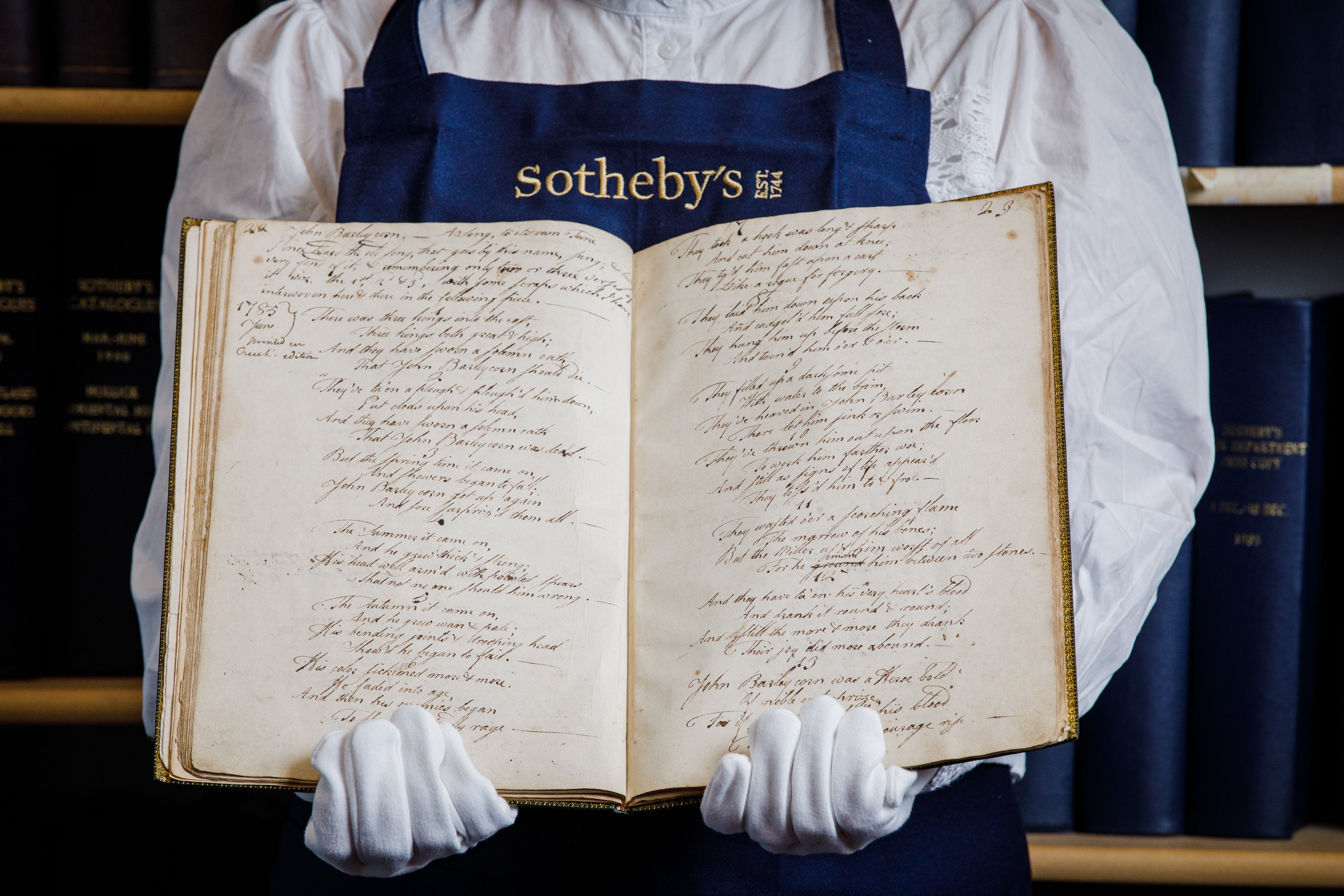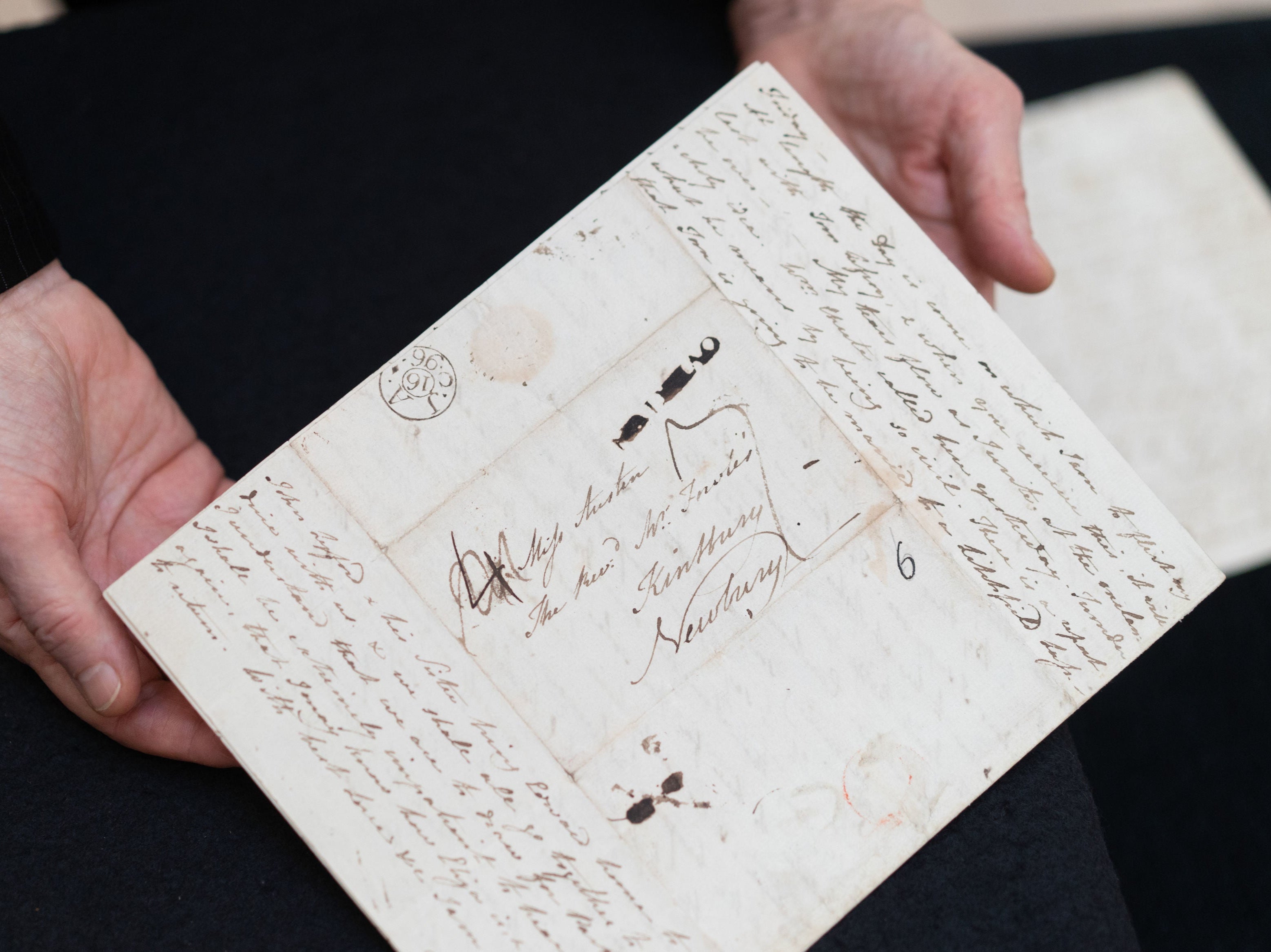Literary ‘treasure trove’ including rare Brontë and Austen handwritten works saved from auction
The Honresfield Library, hidden for almost a century, will be divided up among different institutions for the British public to see

A “treasure trove” of rare literary works by the likes of Jane Austen and the Brontë sisters has been saved for the British public by the nation’s wealthiest man.
The Honresfield Library, hidden for almost a century, was at risk of being broken up and sold on the open market.
But the collection will now safely remain permanently in the UK public domain after the Friends of the National Libraries (FNL) raised the £15 million needed to acquire it.
Ukrainian-born billionaire Sir Leonard Blavatnik donated half the amount needed, while a further £4m came from the National Heritage Memorial Fund (NHMF).
The many other benefactors included the T S Eliot and Foyle foundations, British Library Collections Trust, and The Prince of Wales Charitable Foundation, while thousands of individuals made personal donations.
The collection was formed towards the end of the 19th century by William Law, a Rochdale mill owner, and has remained largely inaccessible for the last 80 years.
At the heart of the library, which includes works by literary giants from both England and Scotland, lies a set of manuscripts in the hands of Charlotte, Emily and Anne Brontë, much of which has never been properly examined.
It includes seven of Charlotte Brontë’s famous “little books”; a manuscript collection of poems by Anne Brontë; some 25 letters by Charlotte Brontë; and a small autograph manuscript diary note shared by Emily and Anne Brontë.

But, according to FNL, the “absolute jewel” of the Brontë collection is Emily Brontë’s handwritten notebook of 31 poems, believed by many scholars to have been lost, which features annotations in Charlotte’s hand.
Jane Austen is represented by two “hugely significant” letters to her sister Cassandra. One, dated January 1976, is the earliest known surviving handwritten letter, penned on the eve of a ball where Austen anticipates the end of a love affair.
The second letter dates from 1813 and discusses the reception of both Pride and Prejudice and Sense and Sensibility.
The collection also includes the complete working manuscript of Sir Walter Scott’s iconic novel Rob Roy, and an early volume of poems by Robert Burns in his own hand.
It had been put up for auction at Sotheby’s earlier this year, but FNL managed to get the sale postponed while the charity raised the money to buy the entire collection.

All of the manuscripts and printed books will now be donated by FNL to institutions across the UK.
Sotheby’s specialist Dr Gabriel Heaton described the library as “a collection like no other”.
He added: “We were amazed and delighted at the incredible ambition of the FNL’s plan to acquire the whole library, and they deserve every credit for bringing their campaign to a successful conclusion. Their success is a testament to what can be achieved by the collaboration of public institutions and private collectors.”
FNL said the collection would now be known as Blavatnik Honresfield Library in recognition of Sir Leonard’s “exceptional munificence”.
The family of the original collectors, who had been the custodians of the library before its acquisition, said they were “delighted” it would remain in the UK “as the property of the nation with many of the books and manuscripts returning to their birthplaces for all to see and enjoy”.

Geordie Greig, chairman of FNL, thanked the generosity of donors, saying: “There has been unprecedented public interest in this collection of manuscripts and books hidden for almost a century.
“Rescuing it has seemed a little like opening an Egyptian tomb to see for the first time ancient texts and treasures which are now saved in perpetuity for students, scholars and book-lovers.
“Thanks to FNL’s successful campaign, the collection will be shared by libraries and writers’ houses all across our island, restoring a treasure trove of manuscripts to their birthplaces.”
The Prince of Wales, patron of FNL, added: “It is tremendous news for our country that Friends of the National Libraries, a charity of which I am proud to be patron, has raised £15 million in just five months to save one of the most significant collections.
“Our literary heritage is our cultural DNA and this preserves it for students, teachers, academics and ordinary readers in perpetuity.”
Join our commenting forum
Join thought-provoking conversations, follow other Independent readers and see their replies
Comments
Bookmark popover
Removed from bookmarks